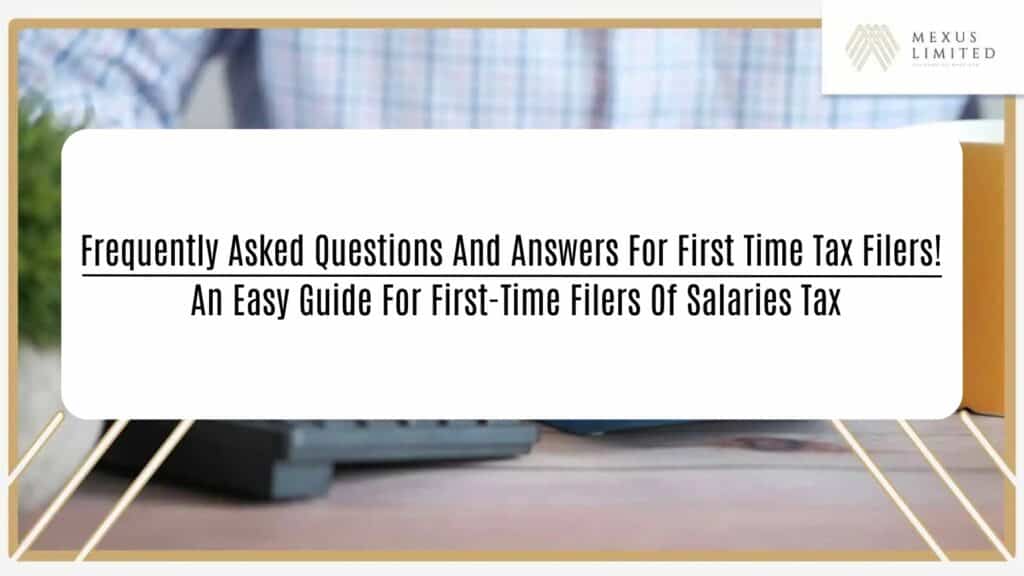Frequently asked questions and answers for first time tax filers! An easy guide for first-time filers of salaries tax

As you enter the workforce, you may be faced with the challenges of a new environment and relationships, but you may also have to pay salaries tax. You may ask: When and how do I report my income to the Hong Kong Inland Revenue Department? What else do I need to be aware of? You may have more questions about this seemingly complex tax system. In this regard, we have compiled a list of some common salaries tax questions you may encounter so that you can better understand the process of filing salaries tax returns.
When is the year of assessment?
Under Hong Kong’s salaries tax policy, the year of assessment is from 1 April to 31 March of the following year, so you have to pay tax in the year of assessment according to your actual income.
Do I need to file tax returns every year?
Normally you need to file a tax return every year, but if your salary income does not exceed the tax allowance, you do not need to pay salaries tax or file a tax return. However, if you have received a tax return from the Inland Revenue Department, you must file it within the specified period. In addition, you may be required to pay provisional salaries tax.
Do I have to file my own tax return?
If you are required to pay or may be required to pay salaries tax, the Inland Revenue Department will send you a form called “Tax Return – Individual (BIR60)” to report your income.
Normally, the Inland Revenue Department will allow one month for you to complete your tax return. However, if you breach the relevant provisions of the Inland Revenue Ordinance, you may face serious penalties and legal problems. The following are three common offences.
-Non-filing of tax returns.
-Not filing tax returns on time
-Filing incorrect tax returns.
What information do first-time taxpayers need to provide to the Inland Revenue Department?
If you are a first-time taxpayer, you may need to provide the following information to the Inland Revenue Department.
Do I need to keep tax records? Can I object to a tax assessment?
According to IRD’s advice, you should be expected to keep the receipts and records for a period of six years (from the end of the relevant year of assessment) so that they can be submitted for examination by IRD in future random checks. However, IRD will assess the tax based on the information provided by employers, employees and other persons.
-A completed tax return (Form BIR60C).
-all receipts, invoices, red books, payroll, payment records and other documents relating to your salary.
-your personal data such as name, address, Hong Kong Identity Card number, contact telephone number, email address, etc.
-your bank account details, including bank name, account number, branch number, etc.
-your family circumstances such as your marital status and number of dependent children.
You can submit your tax return and required documents by mail, e-filing or in person at the Inland Revenue Department.
If you consider that the assessed income is too high, you may object in writing within one month from the date of the notice of assessment, stating the reasons for your objection. If you have always kept proper income records and related documents, you can provide these documents immediately to prove that your taxable income is correct.
If you are claiming deductions for any items (e.g. charitable donations, self-education expenses and annual fees paid to professional bodies), you will need to keep receipts of these expenses for future IRD audit purposes.
If you are unable to submit supporting documents for IRD’s verification in the future.
-the expenditure will not be allowed as a deduction; or
-if the deduction has already been allowed, the assessor may revoke the deduction and issue a supplementary assessment to you.
The above information is for reference only. If you have any queries or information about filing tax returns (personal tax returns, corporate tax returns, accountant tax returns), you are welcome to contact our professional advisors and we will provide you with a free quotation and consultation service in due course.
